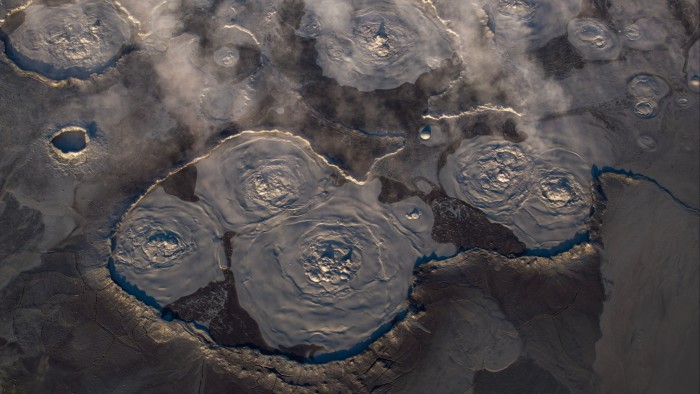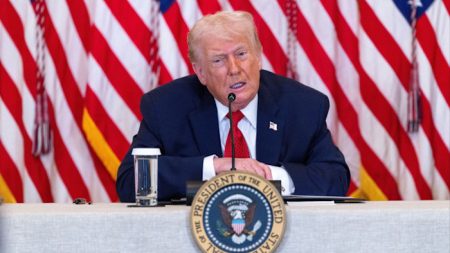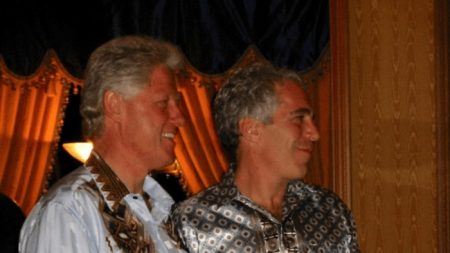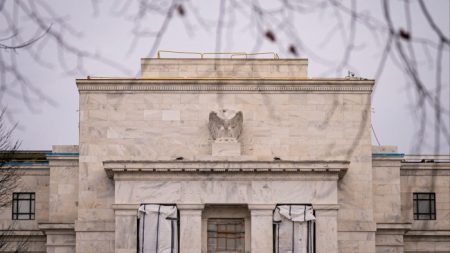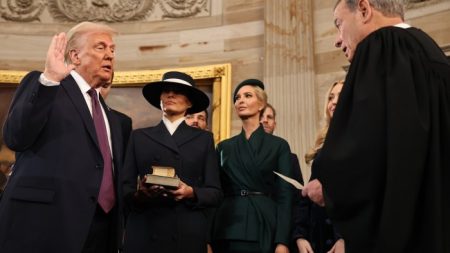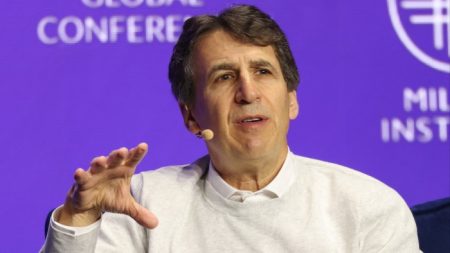Unlock the Editor’s Digest for free
Roula Khalaf, Editor of the FT, selects her favourite stories in this weekly newsletter.
Investors are racing to back rare earth companies, sending their shares to record highs, as Donald Trump’s attempt to break China’s stranglehold on the supply of critical minerals electrifies the once sleepy sector.
The White House is pursuing increasingly radical steps to kick-start the production of rare earths outside China, which has long dominated the supply of minerals used in smartphones, electric vehicles and fighter jets.
Shares of US-listed companies MP Materials, USA Rare Earth and Australia’s Lynas have more than doubled this year, as Trump has ratcheted up support for an industry that has struggled to compete with low-cost producers in China.
The rally in stock prices has extended to producers of critical minerals and other metals, including lithium, cobalt and germanium. In the past month alone, the US has taken stakes in Lithium Americas and Trilogy Metals, two Canadian miners, in an attempt to bolster their financial firepower. Their shares have since doubled and tripled respectively in value.
The US administration is planning to build a strategic mineral reserve and set a price floor for rare earths, which would insulate them from the wild price swings that can occur in a relatively small market that is heavily influenced by Chinese state-owned producers.
It is fast-tracking permitting processes and slashing environmental rules to accelerate construction of mines and processing plants, as part of its “mine, baby, mine” policy.
The battle between the world’s two economic superpowers over rare earths intensified this month after Beijing unveiled new export controls that force foreign companies to seek its approval to export magnets that contain even trace amounts of China-sourced rare earths.
Beijing said it also planned to add five extra rare earths — holmium, erbium, thulium, europium and ytterbium — to its export control list.
“There’s across-the-board interest from investors in these mining companies,” said Timothy Puko, director of commodities at Eurasia Group.
“There aren’t many publicly traded western companies to invest in. Very few targets and a whole lot of shooters in the market right now,” he added.
Some companies are using buoyant markets to raise cash. On Friday, Standard Lithium raised $130mn in a public offering while Critical Metals announced last week it raised $50mn from an unnamed institutional investor to help develop its Tanbreez rare earth project in Greenland. The company’s shares have trebled since the start of the year.
In June, Perpetua Resources, a company seeking to redevelop a mine in Idaho that produces gold and the critical mineral antimony, raised $425mn through a public and private placement of shares.
Some analysts warn the stock market boom has provided fertile ground for opportunists.
“Various rare-earth junior-mining companies have been milking the situation, with typically weak and meaningless announcements, with their share prices benefiting from the apparent reaction to the export controls,” said Gareth Hatch, founder of UK-based Strategic Materials Advisory.
“While I would not characterise the situation as a bubble just yet, investors must do their homework,” he added.
Guy de Selliers, executive chair of North American rare earths company Defense Metals, said “abstract” price floors — or the government topping up what a commercial buyer had paid to ensure a company received a fixed minimum price — was a “dangerous” form of subsidy.
Instead, the build-up of government “stockpiles are the way to create a price floor”, since they established a reference price, he said.
The US administration has sought to procure $1bn worth of critical minerals as part of a stockpiling spree to ensure that its defence and electronics industries have access to materials that are used in everything from F35 fighter jets to cruise missiles.
The Trump administration’s intervention in the industry has extended to taking equity stakes in companies. In July, it paid $400mn for a 15 per cent stake in MP Materials, the largest producer of rare earths in the US. On Friday, the company granted a $15mn stock award to CEO James Litinsky.

The US government also took a 5 per cent stake in Canadian miner Lithium Americas, and last week bought a 10 per cent stake in a tiny Canadian rare earths’ developer Trilogy Metals, causing its shares to treble within hours of the announcement.
David Merriman, research director at Project Blue, a consultancy, said the jumps in the share prices of existing producers such as Lynas and MP were “more fundamentally driven as these producers will be required to ‘fill the gap’” created by Chinese export restrictions.
But “every rare earths developer and their aunt has jumped on this opportunity to suggest they will be getting government support or a tie up with industry, pushing stocks higher in the hype-storm”, he said.
Read the full article here




